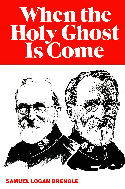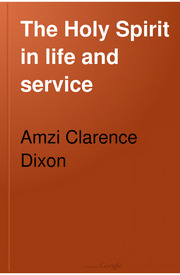Koren Jerusalem Bible (English)
The Koren Jerusalem Bible
The Koren Tanakh was originally translated into English in 1967. The original work was based upon several other English translations that were accepted for Jewish use in the English-speaking world. The principle work was based upon The Jewish Family Bible of M. Friedländer, which was published in 1881. The late Professor Harold Fisch, a scholar of English literature and the Rector of Bar Ilan University, was responsible for the final edited version. Professor Fisch took the base text supplied by Friedländer, compared it with the Isaac Lesser version and other translations, but also incorporated insights from modern scholarship as well as Jewish sources to produce the finished product. Where possible and necessary, Fisch updated archaic language, but at the same time, he maintained elements that many modern translations eliminated. One such example was his use of second person pronouns. The current practice of using “you” for both singular and plural leaves the reader in the dark as to what the Hebrew says and can cause unnecessary confusion. In the Koren Tanakh, when the reader sees “you, or your” it represents the plural, but when the reader encounters, “thou, thee, thy, or thine,” the singular is intended. Although not always understood by modern readers, when thou is used, it represents the subject of the sentence, when thee is used, it represents the object of the sentence. Thy and thine represent the possessive of you, i.e. “your.” The Koren Tanakh does away with the archaic ye, and so the plural, which it was intended to represent, has been simply rendered you. So retaining the older forms for the singular, and using “you” for the plural allows the reader to see what is intended by the Hebrew behind the English translation.

Brengle When the Holy Ghost is Come is from the Salvation Army tradition, and Brengle was part of the Deeper Life Movement.
Downloads
theWord:Brengle When the Holy Ghost is Come
MySword:Brengle When the Holy Ghost is Come
PDF:Brengle When the Holy Ghost is Come
eSword:Brengle When the Holy Ghost is Come
The English translation of this Bible was revised and edited by Harold Fisch. It is a thoroughly corrected, modernized, and revised version of the Anglo-Jewish Bibles that have been accepted for home and synagogue throughout the English-speaking world. The Jewish Family Bible of M. Friedlander, published in 1881, was the basis for this edition. That version was faithful to the Masora, or received Hebrew text. It also retained as much Jewish sentiment as permitted of the unsurpassed language and rhythm of the “Authorized Version” of 1611. Also, a comparison was made with the nineteenth century Jewish Bible of Isaac Lesser and with other later translations.
The language of the old versions has been modernized where ancient linguistic and grammatical forms would be difficult for the present-day reader. Many points of detail have been corrected in light of modern scholarship.
A primary aim of the translators has been to offer a rendering of the English Bible which would match the spirit and outer appearance of the Hebrew text printed opposite it. This text, the “Koren Bible,” is unique among Hebrew printed Bibles in rejecting Greek titles, Latin numerals, and chapter divisions based on non-Jewish authority. The English text is divided up according to the traditional system of petuhot (open line divisions) and setumot (closed spaces) as found in ancient Hebrew manuscripts. (Here adjusted to the KJV standard of theWord – Ed.)
Koren Publishers (5722 [1962])
Text from www.sefaria.org (orig. www.korenpub.com) License: CC-BY-NC 4.0
NOTE ON FONTS: This text requires a font that displays both Hebrew and transliteration characters. It will default to the SBL BibLit font if installed (http://www.sbl-site.org/Fonts/SBL_BLit.ttf).
The print version of this bible was formatted with facing pages of Hebrew and English. The Hebrew was printed with an original and distinctive font. The Koren Hebrew font is available commercially, a free version is Shofar available at: http://culmus.sourceforge.net/taamim/Shofar.zip
-ALbeSH 5778-theword.net
Advertisement

Dixon The Holy Spirit in life and service is a 19 chapter work on the Holy Spirit and various of His relationships and how He works. Chapters on the Personality and Deity of the Holy Spirit, His relationship with young people, the Bible, Bible study, the Evangelist, the Sunday School Teacher, the Pastor, the Christian worker, the purity of the Mind, missions, Christ, etc.
PDF: Dixon The Holy Spirit in life and service
theWord: Dixon The Holy Spirit in life and service
MySword: Dixon The Holy Spirit in life and service
eSword: Dixon The Holy Spirit in life and service
